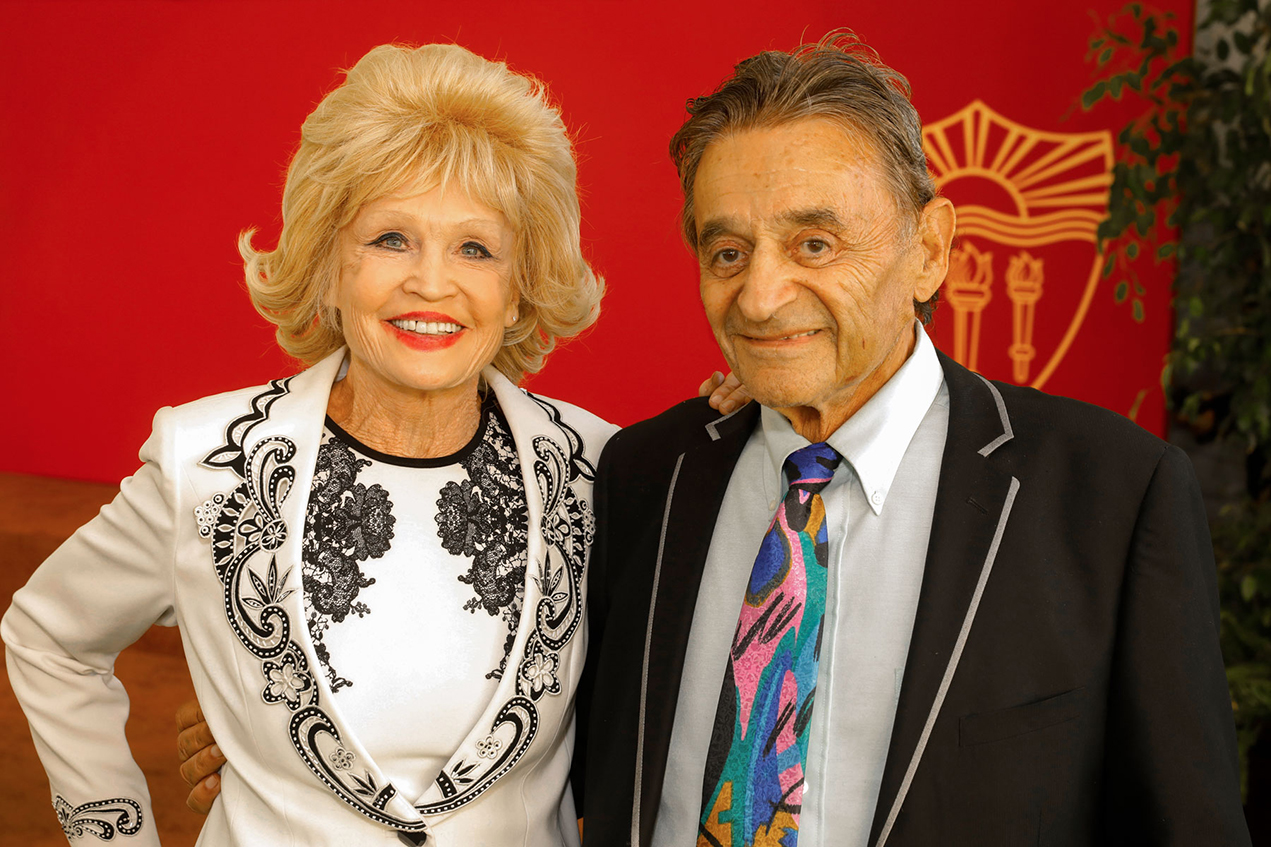The USC Dr. Allen and Charlotte Ginsburg Institute for Biomedical Therapeutics recently received support from the National Eye Institute to host a first-of-its-kind symposium on the use of implantable and wearable devices in ophthalmology. The symposium, called “Abiotic-Biotic Interfaces for Ophthalmology,” will bring together world experts in clinical care, biomedical research, engineering, industry and pharmaceutics to brainstorm ways to transform the landscape of vision science.
The conference comes at a time when innovations in machine learning and personalized medicine have opened new doors for the creation of therapeutic devices that blur the boundaries between human and machine. Scientists at the USC Ginsburg Institute believe ophthalmology is ripe for applying such innovations to treat vision loss. Their upcoming conference will encourage world-renowned experts and up-and-coming scientists to connect, collaborate and pursue innovations that fundamentally advance vision science and patient care.
The two-day symposium, scheduled for January 2021, will feature presentations on topics including implantable and wearable bioelectronic devices, nanoscale scaffolds for stem cell implantation, innovative drug delivery tools and cutting-edge gene therapies. Confirmed participants include leading experts from renowned institutions and numerous industrial partners.
A central goal of the symposium is fostering multidisciplinary collaboration spanning the academic, public and private sectors while creating mentorship opportunities for junior investigators entering the field of vision science. Trainees and early-career scientists will have the opportunity to present their work at the symposium, and one will receive the USC Ginsburg Award for Best Student Paper.
The organizing committee is composed of four leading vision scientists affiliated with the USC Ginsburg Institute: Mark Humayun, MD, PhD, director of the USC Ginsburg Institute and co-director of the USC Roski Eye Institute; Yu-Chong Tai, PhD, Caltech professor and expert in microelectromechanical systems for biology; Amir Kashani, MD, PhD, ophthalmologist with Keck Medicine of USC and associate professor of ophthalmology at the Keck School of Medicine of USC; and Stan Louie, PharmD, professor of clinical pharmacy at the USC School of Pharmacy. All four scientists are actively involved in developing implantable and wearable devices to treat ophthalmic and degenerative neurological diseases.
The committee members will draw upon their decades of experience to lead discussions at the symposium that center on the translational, therapeutic applications of emerging abiotic-biotic technologies. This upcoming conference also builds upon their previous experiences hosting the inaugural USC Ginsburg Institute Symposium and speaking as guest lecturers at numerous external conferences throughout their individual careers.
“Our team looks forward to connecting with vision science colleagues from across the country to collaboratively work toward a brighter future for patients experiencing vision loss,” Humayun said. “There’s no better time than the present to take innovations from fields like artificial intelligence, engineering and medicine and apply them to the treatment of ophthalmic disease.”
— Alexandra Demetriou


